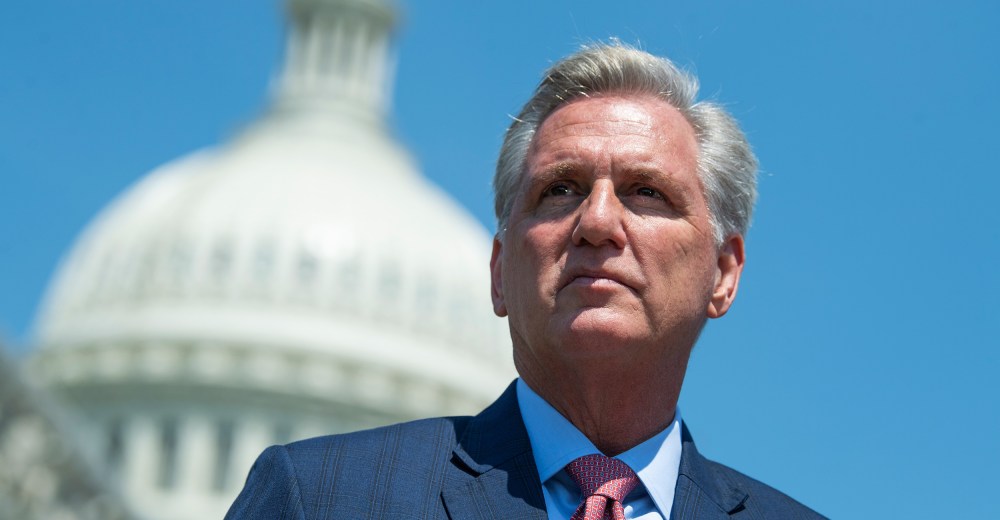A politician’s brain is a black box: We are rarely afforded an opportunity to know what they privately believe as they navigate the party line.
But new reporting, and the ongoing release of audio recordings of Republican congressional leaders expressing private anxiety and anger about former President Donald Trump in the aftermath of the Jan. 6 riot, has gifted us with one of those rare opportunities to observe the difference between what’s felt and what’s said. It hasn’t been pretty. An ever-clearer picture of House Minority Leader Kevin McCarthy’s rank opportunism and naked ambition is emerging with every detail, underscoring how Trumpism has been shielded by Republican politicians fearful of losing their chance to become even more powerful.
McCarthy was indeed more than willing to play politics with the lives of his own colleagues.
The first piece of reporting from The New York Times, published Thursday, revealed that McCarthy, R-Calif., was not only fed up with the then-president, but thought Trump should voluntarily resign. Audio recordings obtained by the Times captured McCarthy telling Republican leaders in the days after Jan. 6, “I’ve had it with this guy”; contemplating the possibility of using the 25th Amendment to remove Trump; and suggesting he would tell Trump, whose actions he called “atrocious and totally wrong,” that he should resign in light of the imminent passage of an impeachment resolution in the House.
But as my colleague Hayes Brown has noted, when it came to his public behavior, McCarthy’s criticism of Trump was far more modest. He also visited Mar-a-Lago and was happy to be photographed next to the seditious president. More significantly, he voted against impeachment, and he eventually worked to kick Trump critic Rep. Liz Cheney, R-Wyo., out of Republican House leadership. McCarthy has called the Times’ reporting “false and wrong,” but it’s gotten a bit of attention within his conference, with some Republican lawmakers signaling that McCarthy is not to be trusted due to his apparent disloyalty.
Then The New York Times published another report, on Tuesday, again with an audio recording of McCarthy, capturing him confessing to other congressional Republicans that he was worried about pro-Jan. 6 rhetoric and call-outs of lawmakers within his party endangering the safety of his colleagues.

“He’s putting people in jeopardy,” McCarthy said of Rep. Matt Gaetz, R-Fla., who was appearing on television after Jan. 6 as a pro-Trump attack dog and criticizing Cheney. “And he doesn’t need to be doing this. We saw what people would do in the Capitol, you know, and these people came prepared with rope, with everything else.”
At another point, McCarthy seemed to entertain the idea that his own political gains were less important than the lives of lawmakers. “The country is too crazy,” McCarthy said. “I do not want to look back and think we caused something or we missed something and someone got hurt. I don’t want to play politics with any of that.”
But as we now know, McCarthy was indeed more than willing to play politics with the lives of his own colleagues, as well as with the life of American democracy. He didn’t take meaningful steps to put a stop to it, but he did target a Trump critic within his party.












